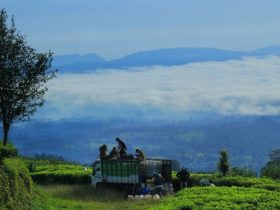Introduction: Turkey, situated at the crossroads of Europe and Asia, is a nation steeped in history, culture, and geographical significance. From slot88 its ancient civilizations to its modern role as a bridge between continents, Turkey has played a pivotal role in shaping the course of human civilization. In this comprehensive exploration, we delve into the multifaceted tapestry of Turkey, examining its rich heritage, diverse landscapes, vibrant culture, and dynamic economy like casibom giris.

1. Historical Overview: 1.1. Ancient Civilizations: Turkey’s history dates back thousands of years, with the region serving as a cradle of civilization for ancient peoples such as the Hittites, Greeks, Persians, and Romans. Iconic archaeological sites like Troy, Ephesus, and Hierapolis bear witness to Turkey’s storied past. 1.2. Byzantine and Ottoman Empires: In the medieval period, Turkey was the heartland of the Byzantine Empire, with Constantinople (modern-day Istanbul) serving as its capital. The rise of the Ottoman Empire in the 13th century transformed Turkey into a global power, spanning three continents and ushering in an era of cultural and scientific flourishing. 1.3. Modern Turkey: The Republic of Turkey was established in 1923 under the leadership of Mustafa Kemal Atatürk, following the collapse of the Ottoman Empire. Atatürk initiated sweeping reforms aimed at modernizing and secularizing Turkish society, laying the foundation for the country’s transition to a democratic, secular state.
2. Geographical Diversity: 2.1. Unique Location: Turkey’s strategic location straddles two continents, with the majority of its territory situated in Asia (Anatolia) and a small portion in Europe (Thrace). This geographical position has made Turkey a hub of trade, culture, and connectivity throughout history. 2.2. Varied Landscapes: Turkey boasts a diverse range of landscapes, from rugged mountains and fertile plains to stunning coastlines and pristine beaches. The Anatolian Plateau is punctuated by mountain ranges like the Taurus and Pontic Mountains, while the Mediterranean and Aegean coasts offer picturesque resorts and turquoise waters. 2.3. Biodiversity: Turkey is home to a rich array of flora and fauna, thanks to its diverse ecosystems and climatic zones. National parks such as Göreme, Olympos, and Mount Nemrut preserve Turkey’s natural heritage and provide habitats for species ranging from brown bears and wildcats to orchids and tulips.
3. Cultural Heritage: 3.1. Fusion of Cultures: Turkey’s cultural heritage is a tapestry woven from a myriad of influences, including Anatolian, Greek, Roman, Persian, and Ottoman. This cultural fusion is evident in Turkey’s architecture, cuisine, music, and traditions, creating a vibrant mosaic of diversity. 3.2. Architectural Marvels: Turkey boasts a wealth of architectural wonders, from ancient temples and amphitheaters to medieval castles and Ottoman palaces. Iconic landmarks like the Hagia Sophia, Topkapi Palace, and Blue Mosque showcase the country’s rich architectural heritage and craftsmanship. 3.3. Culinary Delights: Turkish cuisine is renowned for its diversity, flavor, and mahjong ways 2 freshness, drawing inspiration from both Mediterranean and Middle Eastern culinary traditions. Signature dishes such as kebabs, mezes, baklava, and Turkish delight tantalize the taste buds and reflect Turkey’s gastronomic richness. 3.4. Traditional Arts and Crafts: Turkey has a long tradition of craftsmanship and artistic expression, with skills passed down through generations. From carpet weaving and pottery to calligraphy and marbling, Turkish artisans continue to preserve and innovate traditional crafts, contributing to the country’s cultural vitality.
4. Economic Landscape: 4.1. Emerging Market: Turkey has emerged as a dynamic and rapidly growing economy, driven by its strategic location, young population, and diverse sectors. The country’s Gross Domestic Product (GDP) has expanded significantly in recent decades, making it one of the largest economies in the region. 4.2. Strategic Industries: Turkey’s economy is characterized by a diverse range of industries, including manufacturing, agriculture, tourism, and services. Key sectors such as automotive, textiles, construction, and electronics contribute to employment generation and export revenue. 4.3. Entrepreneurial Spirit: Turkey has a vibrant entrepreneurial ecosystem, with a growing number of startups and SMEs (Small and Medium-sized Enterprises) driving innovation and economic growth. Istanbul, in particular, has emerged as a regional hub for tech startups, attracting investment and talent from around the world. 4.4. Challenges and Opportunities: Despite its economic successes, Turkey faces challenges such as inflation, unemployment, and geopolitical tensions. However, the country also possesses significant opportunities for further development, including infrastructure investment, human capital development, and trade diversification.
5. Political Landscape: 5.1. Democratic Governance: Turkey operates as a parliamentary republic with a multiparty political system and separation of powers. The President serves as the head of state, while the Prime Minister leads the government and legislature. 5.2. Evolving Democracy: Turkey’s democracy has undergone periods of transformation and turbulence, with issues such as political polarization, media freedom, and human rights garnering international attention. The country’s path towards European Union (EU) accession has been marked by reforms aimed at aligning with EU standards. 5.3. Regional Dynamics: Turkey plays a significant role in regional affairs, with interests spanning the Middle East, Caucasus, Balkans, and Mediterranean. The country’s foreign policy priorities include promoting stability, counterterrorism, and economic cooperation in its neighborhood. 5.4. Future Prospects: As spaceman Turkey navigates the complexities of domestic and international politics, the country faces opportunities to strengthen democratic institutions, promote social cohesion, and pursue inclusive development agendas.
Conclusion: Turkey’s rich tapestry of history, culture, geography, economy, and politics makes it a fascinating and multifaceted nation. From its ancient roots to its modern aspirations, Turkey continues to evolve and adapt in a rapidly changing world. As it embraces its diversity, navigates its challenges, and capitalizes on its opportunities, Turkey’s journey remains a testament to the resilience, ingenuity, and spirit of its people. Whether as a bridge between continents or a beacon of cultural fusion, Turkey occupies a unique place in the global landscape, embodying the promise and potential of a nation poised for the future.












